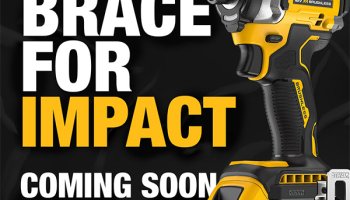
If you buy something through our links, ToolGuyd might earn an affiliate commission.
As we recently reported, the US Consumer Product Safety Commission (CPSC) has moved closer towards introducing a rule that requires table saws to have SawStop-like safety equipment.
The recent activity is the first movements in any direction that the US CPSC has made about the matter in years.
A new comment period, where public and private parties were encouraged to comment on a list of questions and considerations, or in general, closed at the start of February 2024.
Some of those corporate comments strongly support allegations that SawStop has refused to license their safety tech to other companies.
This has been mentioned before, most notably in CPSC updates where they discuss SawStop’s ambiguous stance towards licensing in the absence of a safety standard ruling.
Grizzly Tools’ comments to the CPSC (PDF) were perhaps most illuminating, as they shared private correspondences from 2011 as well as mid-2023.
Consider the following excerpts from Grizzly-SawStop communications.
Grizzly’s President to SawStop’s Steve Gass, in 2011:
We cannot understand your hesitation in granting us a license.
In September 2011, Gass, in a reply to Grizzly, explains what looks to be SawStop’s long-standing opposition to licensing:
Now that SawStop is established, any royalties Grizzly might pay would be less than what SawStop could earn by selling the same number of saws itself, and therefore, as I have explained, a license at the present time is far more challenging because of the risk it creates to SawStop’s business. This, of course, changes should the CPSC implement a requirement for table saws to include active injury mitigation systems. Should that happen, we have said we would offer non-discriminatory licenses to all manufacturers.
In November 2011, Grizzly responded with:
Every letter we have received from you has answers and overtones which imply that you have no intention of licensing your technology to us.
Grizzly’s CEO in August 2023:
I am inquiring about the opportunity to License the SawStop technology so that we can incorporate it into some of our table saw models.
SawStop’s CEO (also the head of Festool in North America) responded with:
I don’t see a licensing agreement in our near future.
Many of the other corporate and institutional comments on the matter are interesting, with parties split down the middle.
UL, for instance, says:
We strongly support this proposal and believe that the use of active injury mitigation (AIM) technology will significantly reduce the incidents of devastating and life-long injuries caused by table saws.
The Power Tool Institute (PTI), a group of table saw brands, opposes the introduction of a safety standard, and points towards a UL standard as standing guidelines:
PTI contends that the Commission should decline to adopt a mandatory rule for table saws, withdraw the SNPR, and terminate the rulemaking. Rather, the Commission should rely upon the voluntary standard UL 62841-3-1… Particular Requirements for Transportable Table Saws.
Reading through many of the public comments, there is a clear line between parties in favor or opposed of the CPSC following through with a flesh-detection and active injury mitigation safety standard.
There are some other interesting arguments that aren’t simply for or against the matter.
Stanley Black & Decker is represented by PTI, and issued their own comments as well, saying that:
If the Consumer Product Safety Commission decides to impose active injury mitigation technology (“AIMT”) as part of a mandatory standard, it is essential that the Commission require that the holder(s) of AIMT standard essential patents, whether SawStop Holding LLC or SawStop LLC, or TTS Tooltechnic Systems, SawStop’s parent since 2017, offer a Fair, Reasonable, and Non-Discriminatory (“FRAND”) licensing commitment to other manufacturers.
In their comment, SBD references SawStop’s “licensing behavior to date”, under a heading saying:
SawStop’s historic behavior underscores the risks of no FRAND commitment.
Referencing arguments made in a lawsuit between SawStop and other toolmakers, SBD says:
First, SawStop has continuously refused multiple AIMT licensing requests dating back to 2002 by Grizzly, another table saw manufacturer. Later, Stanley, Bosch, and Ryobi each approached SawStop to license AIMT in 2009 but were refused licenses “because [SawStop] feared that it would lose sales of its own AIMT saws.
SBD’s puts forward that:
a FRAND commitment would substantially increase the likelihood that AIMT is implemented widely, quickly, and at a reasonable royalty.
They also say:
SawStop’s unreasonably high royalty rate based on the wholesale price of the entire saw—as opposed to the sensing and braking mechanism—has further discouraged manufacturers from licensing the product. With a FRAND assurance, SawStop and TTS would be required to offer reasonable rates reflective only of the patented feature.
Third, SawStop’s successful lawsuit against Bosch illustrates the risk of injunctions.
A FRAND assurance would prevent SawStop and its parent, TTS, from seeking injunctions against companies attempting to implement AIMT and who are willing to enter a license on FRAND terms because a firm that gives a FRAND commitment gives up the power to exclude competitors who believe the offered royalty is unreasonable.
Stephen Gass, a patent attorney who co-founded SawStop and formerly served as its president, previously communicated a strategy of securing intellectual property essential to implement AIMT, stating that “we’ve tried to patent everything that we could to prevent them from using it without a license from us.” For the last twenty years, SawStop has threatened table saw manufacturers with the one-two punch of mandatory CPSC standardization and injunctive relief through district court or ITC action in order to extract supra-FRAND rates.
SBD’s separate comments put forward that, if the CPSC should finalize the proposed rule, they should also require a FRAND commitment.
The argument is that ANY active injury mitigation system may potentially infringe a SawStop patent, and there’s risk of SawStop and their parent company being able to “hold-up” the table saw industry using the threat of injunction to seek supra-FRAND rates on its technology.
They add that
the FTC has identified the specific risk of patent hold-up where an SEP owner might exploit the industry’s reliance on standardized technology to demand excessive royalties.
Now, here’s the “grab the popcorn part”:
SawStop’s and TTS’s refusal to provide a FRAND commitment preserves their ability to wreak havoc with the CPSC’s goal: the inclusion of AIMT technology on table saws. The only beneficiaries to their policy are SawStop and TTS themselves. The CPSC does not need to reach the conclusion that SawStop patents are essential or that end-device pricing is or is not FRAND. Instead, the CPSC need only require SawStop and TTS to provide a binding commitment that they will offer a FRAND rate on any intellectual property rights that may be essential to AIMT and that they will forgo injunctions on any licensee willing in good faith to pay the FRAND rate for their patents.
If SawStop and TTS are seeking to improve safety by making AIMT broadly available to consumers, they will make a FRAND commitment. If they continue to refuse to make a FRAND commitment, however, the truth about their motives will be clear—SawStop and its parent, TTS, are seeking to use a CPSC mandate to extract royalties that are not fair, not reasonable, and not nondiscriminatory. The Commission should not allow SawStop and TTS to hijack its authority in order to line SawStop’s and TTS’s own pockets at the expense of consumers and competition. The Commission should instead require SawStop and TTS to make a FRAND commitment before mandating AIMT.






